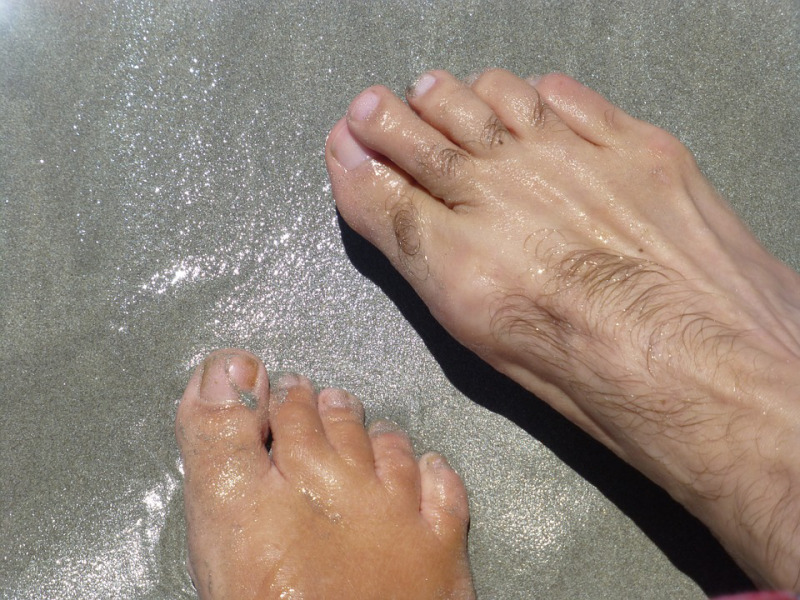Blog

Romans Bible Guide – Day 28
March 13, 2016
Previously, in Romans: After grieving over so many of his fellow Jews’ rejection of Jesus, Paul has reiterated just how close and good and alive Jesus is, encouraging the Romans that all people who “call on Jesus” will be saved.
Romans 10:14-10:21
14 But how are they to call on one in whom they have not believed? And how are they to believe in one of whom they have never heard? And how are they to hear without someone to proclaim him? 15 And how are they to proclaim him unless they are sent? As it is written, “How beautiful are the feet of those who bring good news!” 16 But not all have obeyed the good news; for Isaiah says, “Lord, who has believed our message?” 17 So faith comes from what is heard, and what is heard comes through the word of Christ.
18 But I ask, have they not heard? Indeed they have; for
“Their voice has gone out to all the earth,
and their words to the ends of the world.”
19 Again I ask, did Israel not understand? First Moses says,
“I will make you jealous of those who are not a nation;
with a foolish nation I will make you angry.”
20 Then Isaiah is so bold as to say,
“I have been found by those who did not seek me;
I have shown myself to those who did not ask for me.”
21 But of Israel he says, “All day long I have held out my hands to a disobedient and contrary people.”

Points of Interest:
- ‘but how are they to call…?’ – Paul asks a series of leading questions that move from the power of connecting with Jesus to the importance of the people that make that connection possible. Rome has its ambassadors and armies, and Jesus has his messengers. For the Romans, this might call to mind the people that first started their house church communities or perhaps Paul himself.
- ‘how beautiful are the feet…’ – This sounds like a funny idiom, but it’s another Old Testament reference, again from Isaiah (52:7). Paul edits the quotation pretty significantly to suit his context, applying the passage to the good news of Jesus shared by human messengers throughout the earth. But the whole second half of Isaiah shares the narrative arc of the book of Romans – that God, in the person of a servant, will bring renewal not only to Jews but to all the earth. Paul says it’s happened, and the people helping make it happen are beautiful, or at least their feet are.
- ‘for Isaiah says, “Lord, who has believed…”’ – The disappointment Paul feels that so many people have rejected God’s good news is also predicted in Isaiah. Perhaps Paul takes at least comfort in knowing that it’s always been this way.
- ‘their voice has gone out…’ – The quotation in verse 18 is from Psalm 19. The psalm is about the wonders of nature that show everyone the power and beauty of God. Here Paul applies it to the message of Jesus, which is filling his known world as he writes this.
- ‘I will make you jealous…’ – Now we’re back to Deuteronomy again. (32:21) In its original context, Moses is saying that when Israel loses interest in God, God will prosper surrounding nations as a wake-up call for them to come back to him. Here Paul applies the “make your ex jealous” image to his first century context. The good news of Jesus is going out to all the earth, with at least some non-Jews joyfully benefitting from the fulfillment of God’s promises to Israel.
- ‘Then Isaiah is so bold as to say’ – Paul completes another one of his Old Testament mash-ups. I actually get a big kick out of Paul’s confidence that in the story of Jesus, he’s unlocked the key to understanding such a wide range of Hebrew scripture, often employing it differently than how it was originally understood. Paul ends this section with the powerful image of God extending welcoming hands. People who weren’t even looking for God’s welcome are receiving it, while those that were originally welcomed are stubbornly turning their backs.Paul is so glad that the Greco-Roman world is connecting with God through the welcoming hands of Jesus. But he can’t get over his frustration and grief that his own people have been too busy interpreting the law and fighting the Romans to receive the welcome God has for them.
Taking It Home:
For you – How did you first hear about Jesus? What was your initial response? Thank God for his past and present welcome of you. Consider saying thanks, or sending a thank you note today, to someone who was a beautiful messenger of the good news of Jesus to you.
For your church/city – Pray that more people from your church would become beautiful-footed messengers of the good news of Jesus. Pray this would happen in ways your city can joyfully respond to and see as God’s welcome to them.

